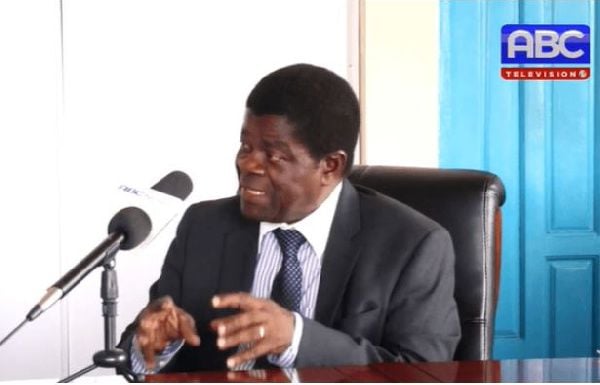The political landscape of Ghana is currently witnessing a contentious debate surrounding petitions calling for the removal of Chief Justice Gertrude Araba Esaaba Sackey Torkornoo. Kwaku Ansah-Asare, former Director of the Ghana School of Law, has strongly criticized these petitions, attributing them to the nation’s deeply ingrained “winner-takes-all” political system. This system, he argues, fosters an environment where incoming administrations, driven by partisan interests, seek to dismantle the work and appointments of their predecessors, regardless of merit or institutional stability. This creates a volatile and disruptive cycle within the judiciary and other key institutions, undermining the rule of law and good governance. Ansah-Asare warns that this trend poses a significant threat to the independence and stability of the judiciary, stressing the urgent need to resist such politically motivated interference. He characterizes the ongoing back-and-forth between the ruling New Patriotic Party (NPP) and the opposition National Democratic Congress (NDC) as a dangerous “ping-pong game,” where the judiciary becomes a political football, jeopardizing its integrity and impartiality.
The petitions themselves, according to the Presidency, have been submitted by three individuals. Two of these petitions were dated February 14, 2025, while the third was filed on March 17, 2025. The content of these petitions remains undisclosed, adding to the speculation and political tension surrounding the issue. President John Dramani Mahama has formally requested Chief Justice Torkornoo to submit a preliminary response to the allegations within ten days. This request, communicated through a letter signed by the Secretary to the President, Callistus Mahama, emphasizes the President’s commitment to due process and assures the Chief Justice of a fair hearing before any further action is taken. The letter underscores the importance of following established procedures in handling such sensitive matters, emphasizing the principles of fairness and transparency. The President’s commitment to due process signifies an attempt to navigate this complex situation with caution and respect for the established legal framework.
The unfolding situation highlights the challenges faced by nascent democracies in balancing political interests with the imperative of maintaining independent institutions. The judiciary, as the cornerstone of the rule of law, is particularly vulnerable to political pressure. The call for the Chief Justice’s removal, regardless of its merits, underscores the need for robust mechanisms to protect the judiciary from undue political interference. The current situation also raises questions about the efficacy of existing checks and balances designed to safeguard the integrity of the judicial process. The controversy surrounding these petitions not only affects the Chief Justice personally but also casts a shadow over the entire judicial system, potentially eroding public trust and confidence. The outcome of this process will have profound implications for the future of Ghana’s judiciary and its ability to function independently and effectively.
Ansah-Asare’s critique resonates with broader concerns about the impact of the winner-takes-all system on Ghana’s democratic development. This system, while enshrined in the country’s political structure, often leads to sharp discontinuities in policy and governance, hindering long-term planning and institutional stability. The tendency of incoming governments to overturn previous decisions and appointments, motivated by political expediency, creates an environment of uncertainty and instability, undermining the effectiveness of state institutions. Moreover, this system can exacerbate political tensions and divisions, fostering a climate of mistrust and hindering national unity. The current situation underscores the need for a broader national dialogue on electoral reforms and the potential benefits of a more inclusive and collaborative approach to governance.
The President’s commitment to due process, while commendable, does not entirely alleviate the concerns raised by Ansah-Asare and others. The very existence of these petitions and the public debate they have generated already have a potentially chilling effect on the judiciary. Judges may feel pressured to make decisions that align with the political leanings of the ruling party, fearing reprisals or challenges to their positions. This can undermine the impartiality and independence of the courts, eroding public trust in the judicial system. Moreover, the process itself, even if conducted fairly, can be disruptive and distracting, diverting resources and attention from the core function of dispensing justice. The need for a more robust framework to protect the judiciary from politically motivated attacks is becoming increasingly apparent.
The ongoing controversy surrounding the petitions against Chief Justice Torkornoo represents a critical juncture for Ghana’s democracy. It underscores the inherent tension between political interests and the imperative of upholding the rule of law. The outcome of this process will have far-reaching implications for the future of the judiciary and the stability of Ghana’s democratic institutions. The need for a national conversation on electoral reforms and strengthening the safeguards protecting the independence of the judiciary has never been more urgent. It is crucial for all stakeholders, including political parties, civil society organizations, and the media, to engage in a constructive dialogue to address the challenges posed by the winner-takes-all system and to ensure the long-term health and stability of Ghana’s democracy.














